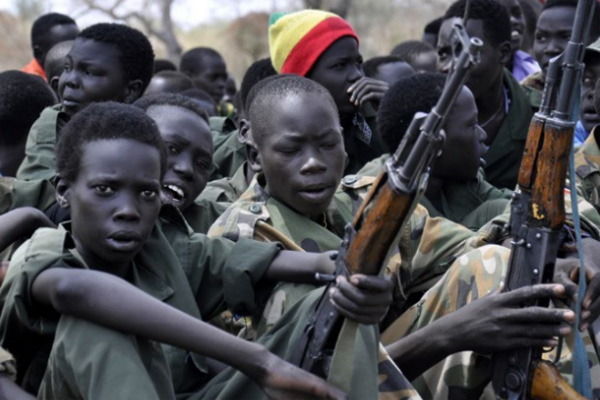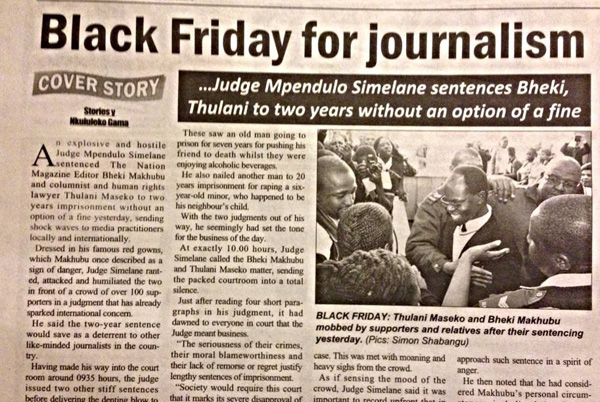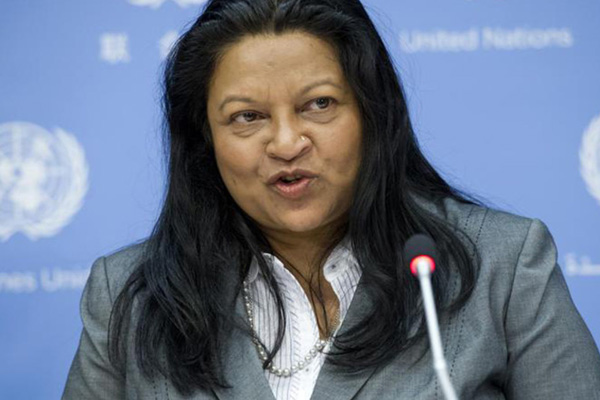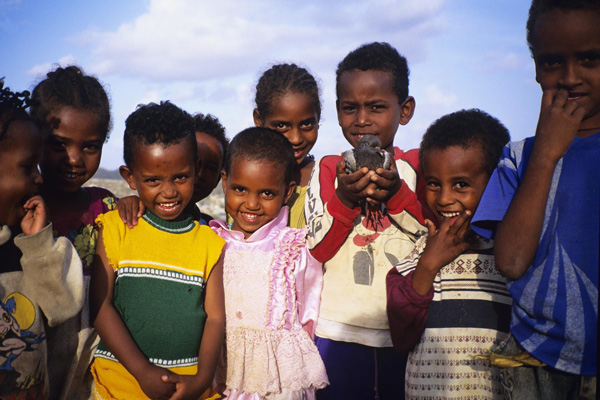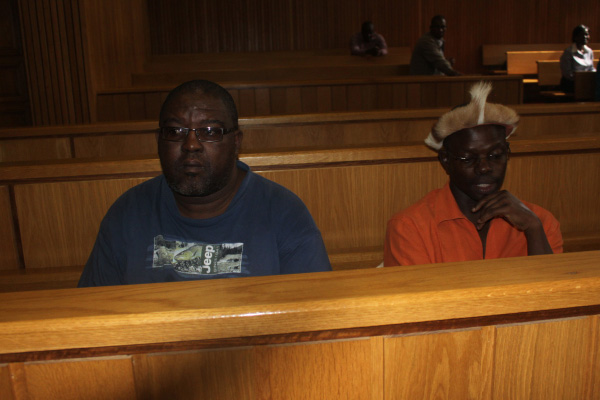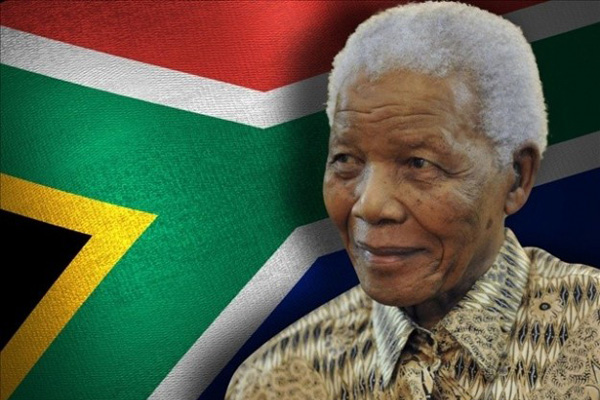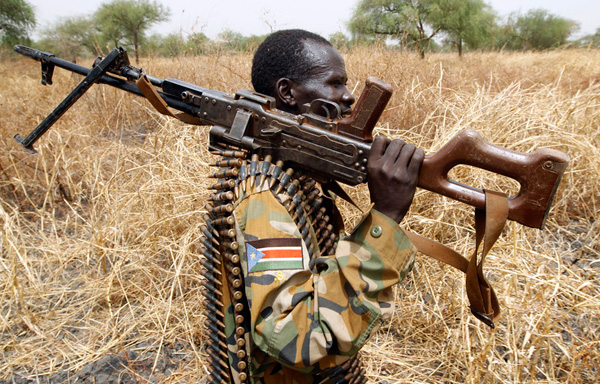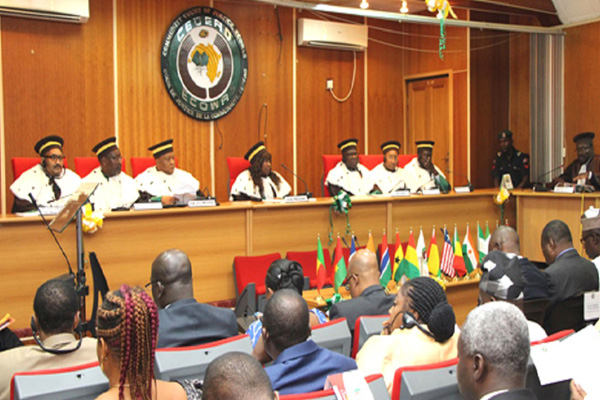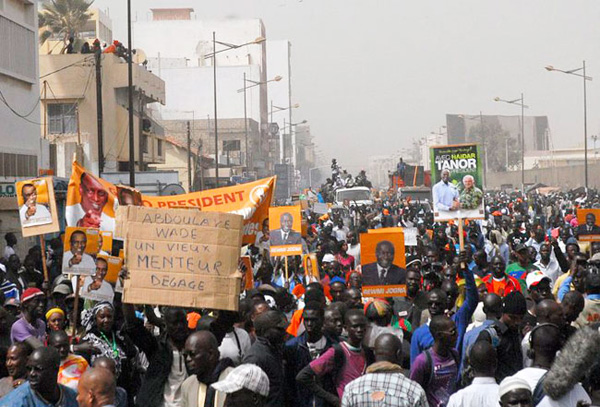- Details
The Centre for Human Rights (CHR), Faculty of Law, University of Pretoria, welcomes the clarity provided in the Supreme Court of Appeal (SCA) judgment in the case of The Minister of Justice and Constitutional Development and Others v The Southern Africa Litigation Centre and Others, on the matter of the visit of the Sudanese head of state, President Omar al-Bashir, to South Africa, and the failure of the South African government to arrest him in accordance with South Africa’s obligations under the International Criminal Court (ICC) and the Implementation of the Rome Statute of the International Criminal Court Act 27 of 2002 (ICC Act).
- Details
The Centre for Human Rights, Faculty of Law, University of Pretoria, regrets the decision by the ANC’s National General Council, this weekend, that South Africa should withdraw from the ICC Statute. Although this is a political decision, which still has to be converted into a legally binding format, decisions by the highest policy-making organ of the ruling party, the ANC, are highly influential. It calls on the ANC to engage in an inclusive and participatory process, involving all national and international stakeholders.
- Details
The African Committee of Experts on the Rights of the Child (African Children’s Rights Committee) made public its third decision (Communication 2/2009, Hansungule and Others (on behalf of children in Northern Uganda) v Uganda, decided at the Committee’s 21st ordinary session, 15-19 April 2013.) In this decision, the African Children’s Rights Committee finds that Uganda conscripted and used child soldiers, in violation of article 22(2) of the African Charter on the Rights and Welfare of the Child (African Children’s Charter). Article 22(2) provides that state parties to the African Children’s Charter must take ‘all necessary measures to ensure that no child shall take a direct part in hostilities and refrain, in particular, from recruiting any child’. A child is defined as anyone under the age of 18.
![]() Download this press statement
Download this press statement![]() Download the decision on the communication
Download the decision on the communication
- Details
The African Committee of Experts on the Rights of the Child (African Children’s Rights Committee) has made public its second finding on a communication (case) submitted to it. This case deals with the conditions of some 100,000 children (called talibés) who, while attending Qur’anic schools in Senegal, are required to beg on the streets of Dakar and other urban centres, to secure their own survival. The case was submitted as far back as 2012 by the Centre for Human Rights, University of Pretoria, and the NGO la Rencontre Africaine pour la Defense des Droits de l’Homme (RADDHO), Senegal (Centre for Human Rights and la Rencontre Africaine pour la Defense des Droits de l’Homme (on behalf of Senegales Talibés) v Senegal, ACERWC, Comm/001/2012, 15 April 2014.)
![]() Download this press statement
Download this press statement![]() Download the decision on the communication
Download the decision on the communication
- Details
Around the continent, Africans today celebrate “Africa Day”. 25 May marks the day, just over half a century ago, in 1963, on which the African Union (AU)’s predecessor, the Organisation of African Unity (OAU), was formed. Its main initial aim was to eradicate the remaining vestiges of colonialism from Africa. It was, in fact, the OAU that spearheaded continental and global campaigns for the liberation of South Africa from apartheid. After the advent of the AU, around the turn of the millennium, the regional organization increasingly became less preoccupied solely with inter-state relations and took on a more people-centred posture, with its focus shifting to human security, poverty alleviation and economic growth.
- Details
The Centre for Human Rights is appalled and deeply concerned not only about the recent recurrence of xenophobic violence, particularly in KwaZulu-Natal, but also by its persistence, and its widespread nature and severity.
- Details
The Centre for Human Rights has learned with shock and distress of the assassination of Prof Gilles Cistac. He was shot four times in the chest by unidentified gunmen in Maputo this morning, Tuesday 3 March 2015. The Centre wishes to express its sincere condolences to the family of Gilles Cistac for the loss of our good friend and esteemed colleague. We join Gilles Cistac’s friends, colleagues and indeed the people of Mozambique in expressing our sadness and outrage at this huge loss to his family, to academia and the legal profession, and to the fraternity of human rights defenders.
- Details
The Centre for Human Rights feels compelled to comment on recent remarks by the South African Speaker of the House of Assembly, when she said "If we don't work we will continue to have cockroaches like Malema roaming all over the place," at the Mmabatho Civic Centre in Mafikeng.
- Details
Advocacy Mission of the African Committee of Experts on the Rights and Welfare of the Child (ACERWC) on the situation of children in South Sudan (03-09 August, 2014)
Juba, 08 August 2014. Following the Resolution on the situation of children in South Sudan and Central African Republic adopted during its 23rd Ordinary Session (16 April, 2014), the African Committee of Experts on the Rights and Welfare of the Child (ACERWC) expressed its concerns on the humanitarian challenges hindering the protection and well-being of children in the two countries;
Recalling the Statement issued by the African Union Peace and Security Council (AU-PSC) on its 434th Session, the ACERWC decided to assess the situation of children in South Sudan with a view of strengthening its efforts to promote the welfare of children in Africa;
The ACERWC accordingly, conducted an advocacy mission to assess the situation of children affected by the conflict in South Sudan from 03 - 09 August, 2014, in accordance to its mandate to promote and protect the rights of children pursuant to the African Charter on the Rights and welfare of the Child (ACRWC).
- Details
The Centre for Human Rights, Faculty of Law, University of Pretoria, learnt with great disappointment that Thulani Maseko and Bheki Makhubu have been sentenced to terms of two years’ imprisonment each, without the option of a fine. The magazine and published were fined E100 000 (USD10 000). These sentences confirmed our worst fears. We therefore reiterate our call to the South African government to take diplomatic and other steps to exert pressure on the government of Swaziland to release Thulani and Bheki. We further urge the government to engage with the Swaziland government about its encroachment of free expression.
- Details
The Centre for Human Rights, University of Pretoria, applauds the United Nations Human Rights Council’s (UNHRC) decision to extend the mandate of the Special Rapporteur on the situation of human rights in Eritrea and the setting up of a landmark Commission of Inquiry (COI) on Eritrea.
Resolution (A/HRC/26/L.6) renewing the mandate and assigning the COI to investigate the human rights situation in Eritrea for a period of one year was adopted without a vote at the close of the 26th UNHRC regular session on 27 June 2014.
Prof Frans Viljoen, Director of the Centre for Human Rights, expressed the hope that “the Human Rights Council's decision would not only increase the possibility for international engagement, but also see to an actual improvement in the human rights situation in Eritrea. I congratulate the Special Rapporteur and her team of researchers at the Centre, for their dedicated work”.
- Details
![]() Download this statement (English)
Download this statement (English)
![]() Download this statement (Arabic)
Download this statement (Arabic)
![]() Download this statement (Tigrinya)
Download this statement (Tigrinya)
The Unaccompanied children of Eritrea: a plea for collective responsibility
As the African continent celebrates the Day of the African Child, 16 June 2014, the Centre for Human Rights (CHR), University of Pretoria, focuses on the plight of unaccompanied children fleeing from a militarised society that is destabilising the social fabric of the country. Thousands of unaccompanied minors take risky journeys across the borders into Ethiopia, Sudan and further afield.
- Details
![]() Download this statement
Download this statement
![]() Download Mr Thulani Maseko's statement made in court on 5 June 2014
Download Mr Thulani Maseko's statement made in court on 5 June 2014
The Centre for Human Rights expresses dismay at the arrest of MessrsThulani Maseko and Bheki Makhubu, by the Royal Swaziland Police Service on 17 and 18 March 2014, and their continued detention. Mr Maseko is a Swazi human rights lawyer and graduate of the Centre’s Master’s programme in Human Rights and Democratisation in Africa; Mr Bheki Makhubu is the editor of the New Nation magazine.
- Details
Statement by the Centre for Human Rights, Faculty of Law, University of Pretoria to the African Commission on Human and Peoples’ Rights, at its 55th ordinary session, Luanda, Angola, 29 April 2014, on the situation of human rights in Africa
- Details
Justice Johann van der Westhuizen, judge of the Constitutional Court and founding director of the Centre for Human Rights, University of Pretoria, on 10 December 2013, International Human Rights Day, received an honorary doctorate from the University of Pretoria.
Justice van der Westhuizen received the degrees BA Law cum laude in 1973, LLB cum laude in 1975 and LLD in 1980 from the University of Pretoria. His LLD thesis is entitled ‘Noodtoestand as regverdigingsgrond in die strafreg’ (‘Necessity as a ground of justification (or as a defence excluding unlawfulness) in the criminal law’). Justice van der Westhuizen has had an illustrious career as an academic, human rights practitioner and judge.
- Details
In the context of a conference on women’s reproductive health rights to commemorate the 10th anniversary of the adoption of the Protocol to the African Charter on Human and Peoples’ Rights on the Rights of Women in Africa (Women’s Rights Protocol) on 9 and 10 December, two prominent activists delivered inspiring words to conference participants and external guests. Dr Pregs Govender, Deputy Chairperson of the South African Human Rights Commission, delivered the keynote address that opened the conference, and Mr Stephen Lewis, Co-Director of AIDS-Free World, presented the 3rd annual Helen Kanzira Lecture. Both speakers invoked the ideals of the late Nelson Mandela and referenced the impact of his leadership and life.
- Details
Senate Hall, Conference Centre, University of Pretoria
6-7 December 2012
The Centre for Human Rights in collaboration with the Department of Political Sciences, University of Pretoria, will convene an international conference, 6-7 December 2012, under the over–arching theme: ‘Article 4(h) @ 10: How to End Mass Atrocities in Africa.’ The conference is being held in commemoration of the fact that it is now 10 years since the coming into force of the Constitutive Act of the African Union, which ushered in a normative change to the pan-African peace and security agenda, particularly regarding the parameters of sovereignty and intervention for humanitarian ends. At the front and centre of this paradigm shift is Article 4(h) of the Constitutive Act, which allows the African Union to intervene in a member state in the face of war crimes, genocide and crimes against humanity.
- Details
The Alberton Magistrates’ Court on Monday 30 July 2012 made an order vindicating the rights of two lesbian women who had lodged a complaint that they were not allowed to publicly celebrate their civil union at Sha-Mani, a privately-owned functions venue and conference centre in Alberton. Sitting as an Equality Court, the Court accepted the agreement between the parties and ordered that Sha-Mani must pay R20 000 to OUT, an NGO working towards gay and lesbian well-being. Sha-mani was also ordered to allow gays and lesbians to hire any of Sha-Mani’s three venues for any purpose, including for weddings.
After the case, the couple, Francis and Liani Buitendag, said: “We really hope this case will help others in the LGBTI community to realise they can stand up against unfair discrimination on the grounds of sexual orientation or gender identity”.
![]() Download this press release in PDF format (English)
Download this press release in PDF format (English)
![]() Laai hierdie persverklaring af in PDF formaat (Afrikaans)
Laai hierdie persverklaring af in PDF formaat (Afrikaans)
- Details
Following the decision of the ECOWAS Community Court of Justice of 13 March 2012 to adjourn the hearing of the case, RADDHO v Senegal, Case No. ECW/CCJ/APP/03/12, the Court proceeded to hear the matter on 4 May 2012.
The Republic of Senegal was represented by their Counsel, Mr Mafall Fall, while RADDHO’s Chairperson, Alioune Tine and RADDHO’s lawyer, Maître Amadou Kane were also present.
The Centre for Human Rights, which has been the legal and technical adviser of RADDHO in this matter, was represented by Mr Horace Adjolohoun who also acted as lead counsel in this session of the hearing.
- Details
Following the decision of the Constitutional Council of Senegal to endorse President Abdoulaye Wade as a presidential candidate for a third term, RADDHO, a non-governmental organisation based in Dakar, Senegal, lodged a complaint to the ECOWAS Community Court of Justice against the government of the Republic of Senegal on 16 February 2012 cited as case no. ECW/CCJ/APP/03/12.
In bringing the suit, RADDHO enjoyed the support of the Centre for Human Rights, University of Pretoria, which acted as legal and technical advisor.



